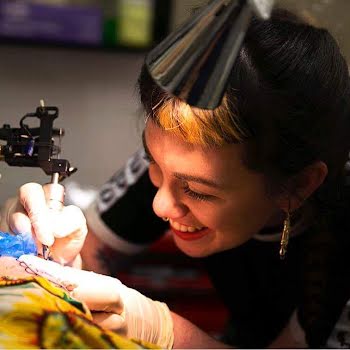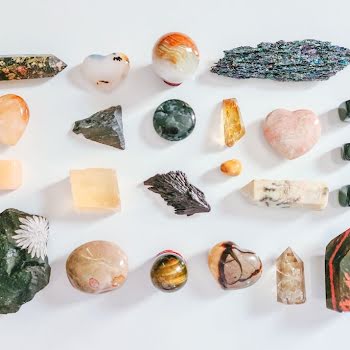
‘I didn’t realise that men could even get postnatal depression’
Postnatal depression is a harrowing battle at a time when parents can feel particularly vulnerable. But can such trauma bring a couple closer? Amanda Cassidy reports.
“Parenthood deepens your love for your partner because you see them in a different light,” said singer John Legend, speaking about the challenges he and his supermodel wife overcame when they started a family.
“When Chrissy was going through postpartum depression, you just see different sides of that person, and if you go through it and you learn from it and you come out the other end better for it, then it deepens and strengthens your relationship.”
Chrissy Teigen has always been very open about her fertility struggle and how she and John had turned to IVF to have their daughter, Luna and son, Miles. In 2015, she wrote a profoundly relatable piece in Glamour magazine about when she was diagnosed with postnatal depression and how she coped with the exhaustion, pain and “spontaneous crying”.
“When I wasn’t in the studio, I never left the house… Most days were spent on the exact same spot on the couch and rarely would I muster up the energy to make it upstairs for bed.”
Bleak
Postnatal depression is a non-psychotic depressive disorder that occurs after the birth of a child. Distinct from the ‘baby blues’, it is typically characterised by mood swings, anxiety, irritability, and insomnia in the days following birth but can lurk up to a year after delivery.
Their honesty and ability to put such a difficult topic into the spotlight has been welcomed by many who shared their journey. And when you feel alone in the dark world at 4 am, overwhelmed and ashamed for the blackness you cannot shake, feeling like there is someone who understands can be a life-line.
But is this a neat and glossy Hollywood ending? And can those in the thick of the messy reality of mental illness really expect to come out the other end “better for it”?
Not just a women’s issue
Viren Swami is a professor of social psychology at Anglia Ruskin University.
He led a recent study that found that people are almost twice as likely to correctly identify signs of postnatal depression in women than in men. He told IMAGE.ie that people still believe that postnatal depression is a ‘women’s issue’ due to gender-specific factors such as pregnancy-induced hormonal changes and delivery complications.
“Dads get sad too and that’s not discussed as much. Men are supposed to be mentally tough and robust. We live in a society where masculine men are not supposed to show weakness and PND doesn’t fit with the idea that men can get mental illness.
The dad-of-one says that the reasons a parent might experience postnatal depression are multi-factorial. They might feel like a bystander to the mother-infant bond, they could find it hard to balance the expectations and realities of childbirth, or they might feel under pressure to provide emotional support to the family.
To be depressed after the birth of my son felt selfish and I felt shame at the burden I placed on my wife whenever I struggled to function normally.
When Swami’s son was born two years ago, he, himself slipped into the debilitating PND.
“I didn’t realise at the time that men could even get postnatal depression. I thought I needed to be tough for my new baby and my partner, [that] I needed to be the rock.
“I found it near impossible to ask for help. A part of this stemmed from difficulty admitting that I might be depressed, particularly at a period when cultural and family expectations suggested that I should be happy.”
Debilitating
“But there was a great deal of shame, too — shame at my frailty, my uselessness as a father, my inability to ‘man up’ and face the challenges of caring for my son. To be depressed after the birth of my son felt selfish and I felt shame at the burden I placed on my wife whenever I struggled to function normally, whenever I withdrew. And that shame was debilitating.”
“Life isn’t that simple.”
What about the idea that the trauma of going through something so bleak can bring you closer?
“It took much more work for me to love my child. And I do love him now,” admits Swami. “It required me to go through an understanding of my own health, my own mind. That was difficult. It impacts the whole family unit. The partner, male or female, has to pick up a lot of the slack because you don’t feel capable of doing it. I struggled to talk to my partner. I pushed her away for a long time.”
He believes that life isn’t as simple as something so multifaceted as postnatal depression bringing people closer. “Relationships require work and a stressor like this, mental illness, is a huge strain. When you add children into the combination, it is so much harder again. In the longer-term, if one partner doesn’t want to seek help there is stress, loneliness, isolation, frustration, anger. I don’t think you can romanticise this as something that brings you closer. In many cases, it tears you apart.”
Emotional exhaustion
I empathised and wanted nothing more than to make her hurt to go away, but I couldn’t understand
Of course, every relationship is unique, and the way someone experiences mental illness is also different. Some have more family support than others: partners might work away or someone might be more stubborn when it comes to finding help. Some people are more resilient than others.
Like John Legend and Chrissy Teigen, Dubliner Jake and his wife struggled for years to conceive their daughter. He says that by the time they welcomed their daughter into the world, they were mentally and emotionally exhausted and it took its toll on their relationship.
“My wife got postnatal depression and we did everything we were told to do. I even went to get therapy to find out how best I could support her. But the thing is that I couldn’t get a deeper understanding into why she was crying all the time and couldn’t get out of bed. I loved her of course, I empathised and wanted nothing more than to make her hurt to go away but I couldn’t understand.”
Five years later, Jake and his wife have separated. He believes their individual isolation of emotions was to blame. “We just couldn’t get past it,” he says.
Potholes
Nietzsche wrote that invisible threads are the strongest bonds. And while that might not hold true for everyone, when you’ve been through something as difficult as PND as a couple, there often is a deeper understanding.
When my son is old enough to read this, I hope he understands that I was never my depression.
But does that automatically mean you grow closer?
More often than not, trauma disconnects. Overcoming huge challenges like what Swami went through takes a great deal of hard work, baby steps, courage. Overcoming those challenges is always victory worth celebrating.
Now he is encouraging men to seek help and to seek strength wherever that may be — your GP, your partner, even your barber. “Many of them are now being trained in mental health first aid,” he points out.
Ultimately, he now believes that finding individual strength must be the priority. And that finding it somewhere, anywhere, is key before you can apply it to your relationship. In his case, it was his relationship with his son that grew stronger, deeper, and gained more understanding.
“The truth is, it breaks me to know that my son will one day learn that his father was unable to cope with his arrival into the world. If he ever does need help, both his parents will be there to support him. And I also want him to know that, in my darkest days, it was he that gave me the strength to keep fighting.
“In spite of the anxieties, the fear, the self-loathing, a love for my son deeper than anything I thought I’d ever know began to grow. And that love continues to evolve every day. I hope he understands that I was never my depression. And that I will always love him.”
Image via People.com
Read more: Postnatal depression: I tried to take my own life
Read more: The secret to a happy marriage (according to relationship therapists)
Read more: Five signs you need a mental health day























